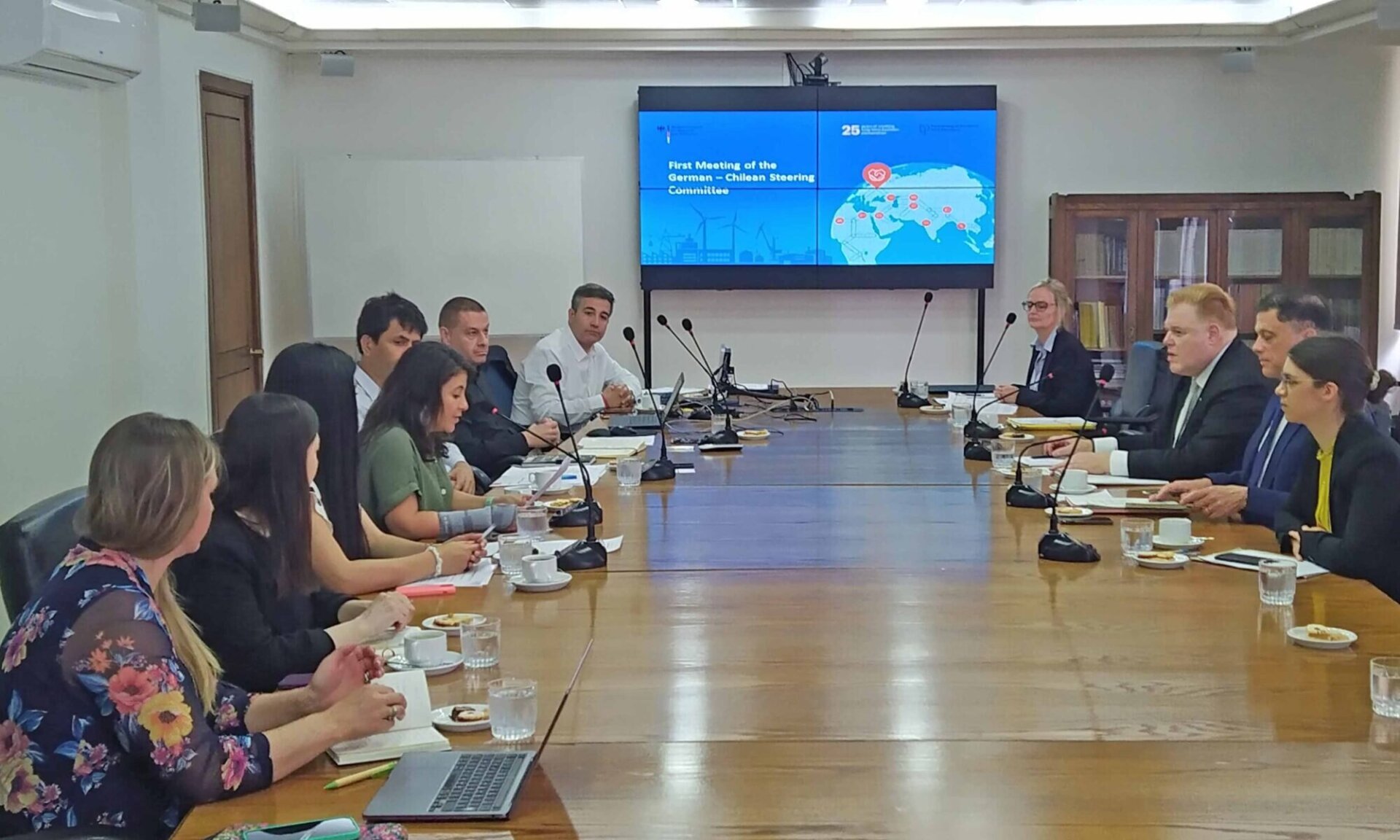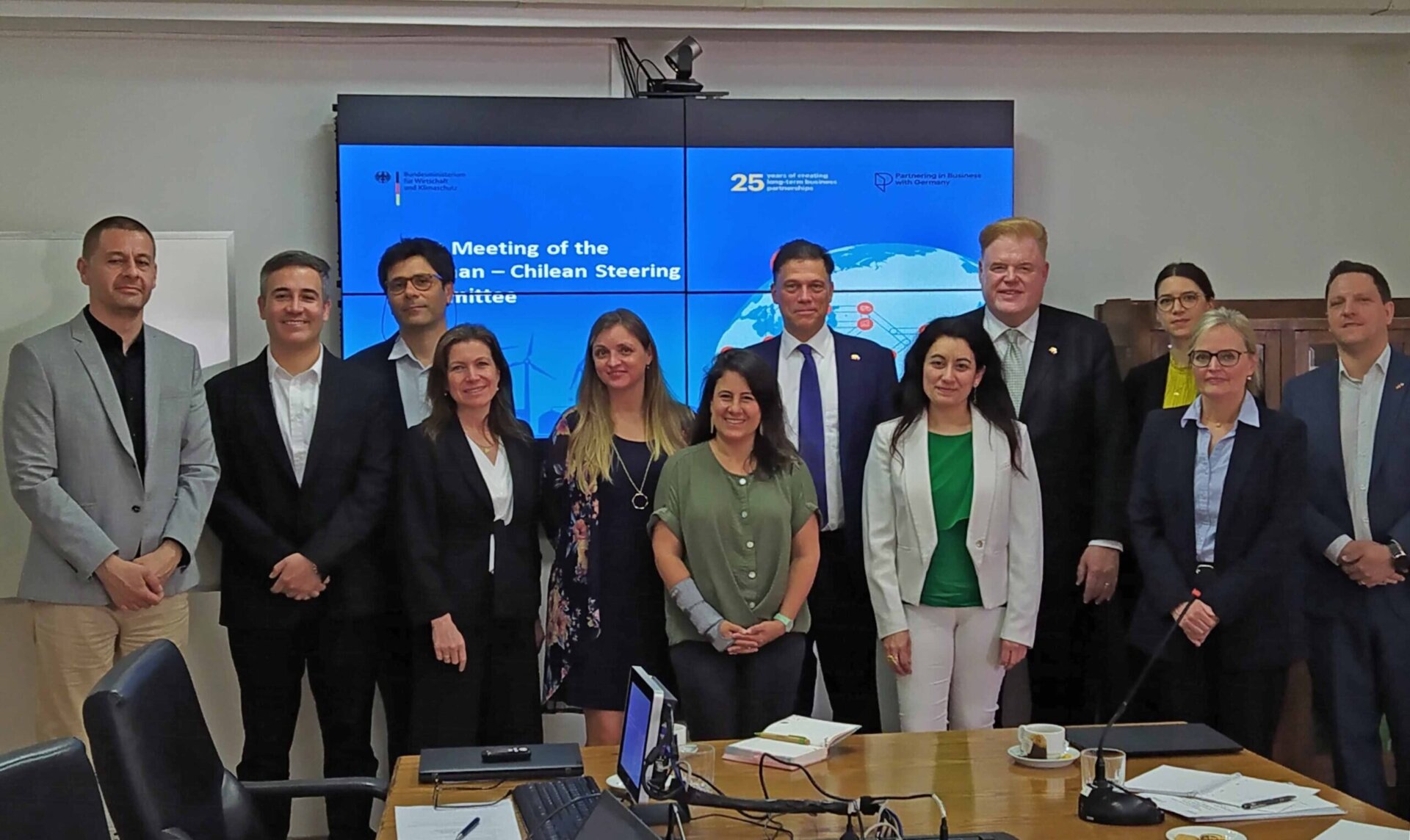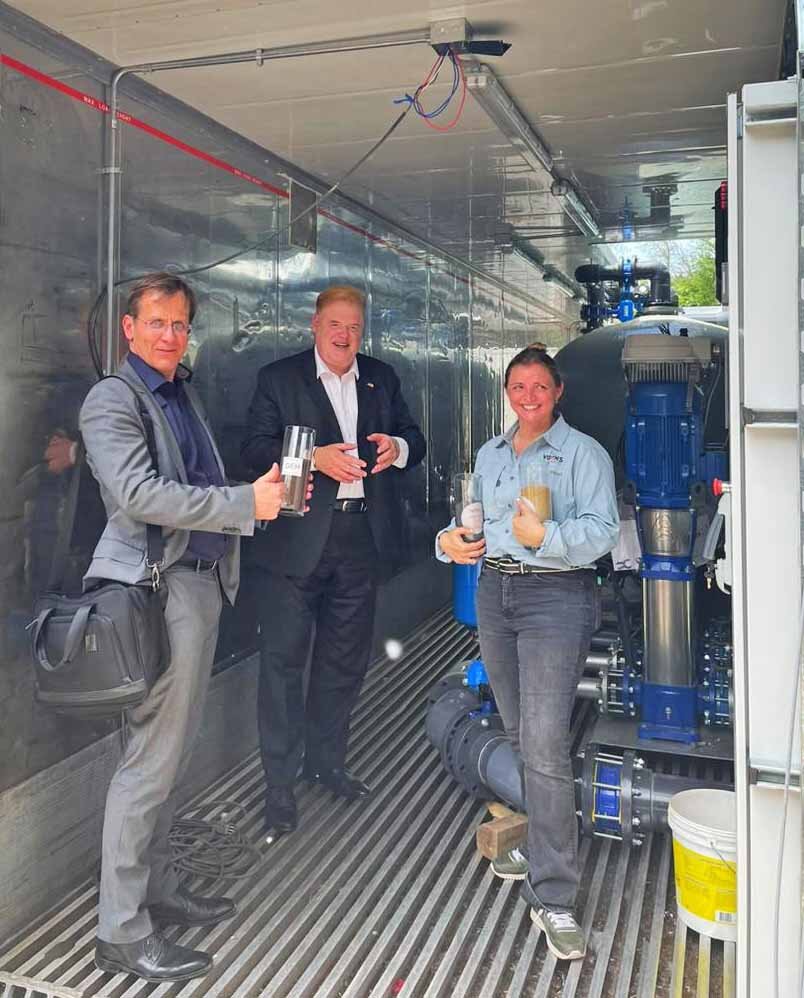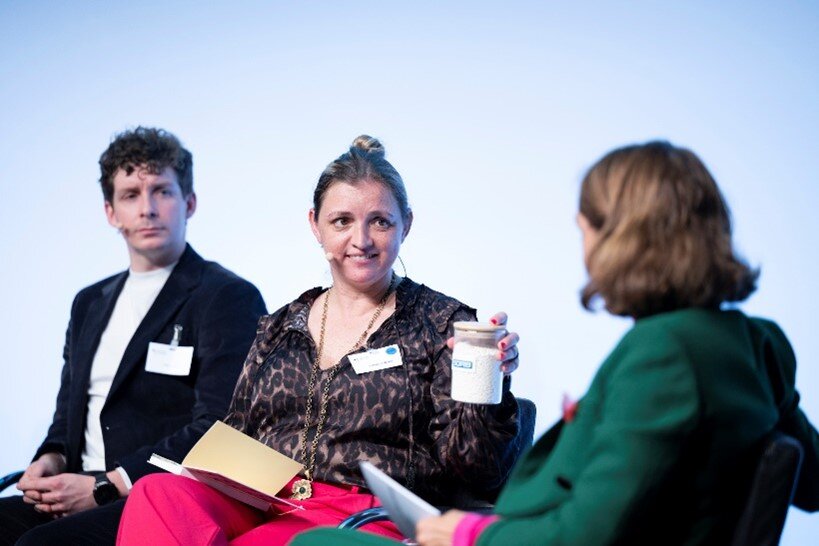At the ministerial level, the German side was represented by Dr Christian Forwick, Head of the Division for Foreign Trade, Trade Policy and America at the Federal Ministry for Economic Affairs and Climate Action (BMWK) and Ulrich Niemann, Head of the Division in the Department for Foreign Trade Policy responsible for the Programme. Ira Ronzheimer from the German Embassy, responsible for economic and scientific-technical cooperation, and Philip Bartsch, Deputy Managing Director of AHK Chile, also took part in the discussion.
The Chilean political partners were represented by Marisol Alarcon, Head of the Small Business Department at the Ministry of Economy, Development and Tourism (MINECON) and Carolina Gutierrez, responsible for international affairs in the department. Other participants on the Chilean side were Claudio Valenzuela, Head of the Networks and Territories Department at the foreign trade promotion agency CORFO, as well as the Programme’s alumni.




